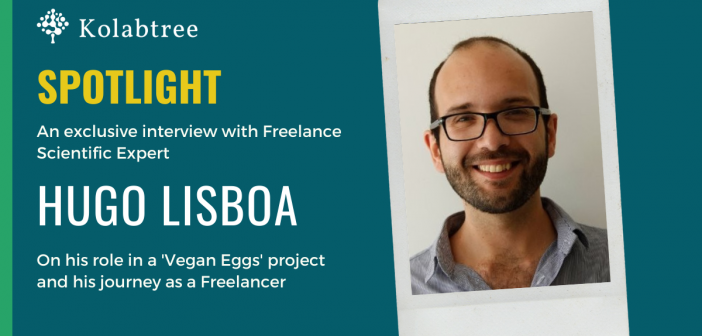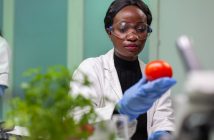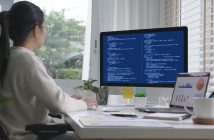Kolabtree’s freelance scientific expert and food scientist Dr. Hugo Lisboa on his career journey, working on a ‘vegan eggs’ project and how platforms like Kolabtree are bridging the gap between academia and business.
A food and biomaterials scientist, Dr. Hugo Lisboa holds a PHD in Material Science and Engineering and a degree in Chemical Engineering. Over the years, he’s worked in both academia and business, experiencing the best of both worlds and acquiring a set of unique skills and experience.
As a freelancer on Kolabtree, he has taken on a wide variety of projects such as increasing the shelf life of food ingredients and helping identify a way to perfect a recipe for vegan eggs. As part of the Spotlight Series, I had a chance to sit down with Dr. Lisboa and discuss his career so far, effects of the pandemic on traditional working methods and how platforms like Kolabtree can bridge the gap between business and academia.
NM: How did you get into science? Tell us about your research/industry experience
HL: I studied chemical engineering and, when I graduated, I joined a biomedical company. It was surprising to enter a material science domain, but it was a great opportunity for me. I then opted to do my PHD whilst I was still in the company, and my focus area was polysaccharides that are extracted from food waste. It’s been an eventful journey since then, working on the business side of things before eventually moving into teaching and now freelancing.
NM: What kind of projects do you enjoy the most? Do you have a favourite one, or one you consider your most challenging?
HL: I take on a wide range of projects as a freelance scientific expert, but I really like working on projects that focus on relevant problems in society. For example, turning polysaccharides extracted from food waste into medical devices was something that greatly appealed to me, since you’re solving a problem whilst simultaneously creating something out of it. The most interesting ones are those like the ‘vegan eggs’ project that got featured on NBC, which is a major step forward towards achieving food sustainability. I have also worked on a few projects aimed at improving the shelf life of ingredients and similar things, which I find quite intriguing to work on.
NM: What prompted you to become a freelance scientific expert? How has COVID-19 impacted this?
HL: When I got back to Brazil, I continued teaching at a university here. When my contract expired, I started looking for work but the pandemic posed a massive challenge. That’s when I found Kolabtree and started taking on projects as a freelance scientific expert. It’s been a great experience, with some great challenges along the way of course.
NM: How do you think the pandemic has shifted the perspective on remote working? Are businesses more open to hiring freelance scientific consultants than before?
HL: Yes, I think so. I wish this pandemic never happened, but it has created different opportunities that we have to adapt to. Now that more people are working from home, they’re thinking about re-inventing their business ideas and following dreams that they’ve been sitting on for years. Since they can’t go about hiring consultants or advisors for this the traditional way because of the lockdowns, they are turning to online platforms to hire freelance experts and scientists to offer them counsel and guidance on several aspects of their ideas.
I think the youngsters in particular have a lot of ideas, and they’re using this time to make a difference in their lives and the community. They’re following their dreams, and that has really inspired me. I’ve also noticed that people with more traditional brick and mortar business models are now diversifying online due to the pandemic, and I think freelance scientific experts can plug a gap here, help them innovate their products better and get it to market more effectively.
NM: Do you think full time remote working is here to stay? What would your prediction be on whether this is a short time solution or long term shift?
HL: I think remote working has opened a window and people are seeing things a little bit differently now. I think the number of people with permanent remote jobs will drastically increase. People and companies are realizing that a lot of good things can come from working from home, and productivity has not been an issue for the most part. Of course, people working in traditional roles that require office/shop visits will eventually go back to the pre-pandemic way of working, but I think people will try to work remotely wherever possible.
Teaching is another area that I personally don’t think is suitable when done in a remote working capacity. I’m teaching a postgraduate course now, and the relative lack of interaction between teachers and students in online classes compared to classroom teaching means the student really misses out. I don’t think anything can replace the classroom experience, and the students really learn a lot whilst engaging with the teachers and their fellow students.
So, I don’t think all jobs will be translated to remote working but the ones that do will solve a lot of problems. Traffic, for instance. Why sit through the hustle and bustle of traffic to rush to the office downtown when you have a good office at home that’s perfectly equipped for you to conduct all business from? This is key to saving time, leading a healthy lifestyle and ultimately establishing a better work-life balance.
NM: How do you think freelance scientific experts on platforms like Kolabtree can bridge the gap between academia and business? Can you give some examples from previous projects?
HL: Academia, Business and Freelancing are three massive different worlds. Having worked in all three, I have started noticing subtle differences and patterns. Business and project owners, for instance, are not too fixated on writing articles around their ideas or going too deep into why a particular thing works better than the other. They are mainly concerned with the final product, which I totally agree with, having worked in a similar environment early on in my career.
Here’s where I think freelance scientific experts might be able to play an integral part. The ‘academic’ in me tries to dig deep to also optimize it and come up with the best solution within every aspect of the product, focussing on a holistic approach rather than just the final product. I think these two worlds can combine really well through academic freelancers and consultants, optimizing the entire product as well as accelerating the development of the final version.
Smaller businesses, especially, must optimize this opportunity. They cannot afford a top of the line Research and Development department. They have really good ideas, but who’s going to develop them? A platform like Kolabtree can easily provide expert freelancers to work on their ideas in a cost-effective way and solve a huge problem here.
NM: What was your experience like working on the Peggs project?
HL: I think it was a really interesting project to perfect a recipe for vegan eggs, and I loved working on it. Grace wanted to address something really important, coming up with new sources of food that also contributes to a more sustainable way of life. When she told me that she graduated from Stanford, I was quite impressed and was looking forward to learning a lot from her.
I usually do a thorough evaluation of all my projects, and this was one that I picked because I was passionate about it. I felt this was a chance to be a part of something valuable that will go on to make a difference in the world and do a lot of good for the community.
In general, I think there are a lot of projects posted on Kolabtree that are similarly inclined towards something relevant to the way civilization is going, such as sustainability and climate change etc, which is a great thing.
NM: What would be your tips when using a platform like Kolabtree to grow a business?
HL: The key is to make sure your project description covers all the essential points a freelancer needs to know to submit a relevant bid. Of course, ensuring your description does not disclose sensitive information about the project is paramount, but make sure relevant details are provided so that you don’t end up with a thousand experts bidding on your project and have to narrow it down manually.
Also, take some time to get to know the experts. A quick call before awarding the bid will suffice to understand if the expert is the right person for your project. Kolabtree, as a team, also helps project owners find the right fit for their project since they have more information on niche experts who are specialized in their particular domains.
Or, if you want to do your own research and invite the expert to bid on your project, make sure you’re covering all the pertinent details such as budget, expertise and willingness to add holistic value to the project like we discussed earlier.
This piece is part of Kolabtree’s Spotlight feature, where we showcase the lesser-known aspects of our extensive network of freelance scientific writers, regulatory specialists and other PHD-qualified experts who are available for on-demand hire
Looking for expert help? Post a project for free on Kolabtree or scout from our wide network of freelance experts.







